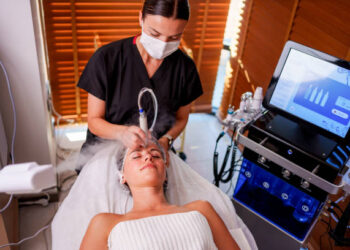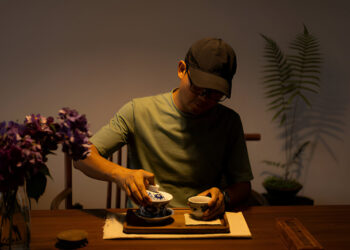What is Porn Addiction and Why It Matters?
Porn addiction means watching adult videos too much, even when you don’t want to. At first, it may feel normal. But after a while, it can affect your brain, heart, and daily life. Many people feel sad, tired, or lonely because of it. Sometimes, they even stop enjoying fun things they used to love. That’s why it’s important to talk about it.
If someone watches porn too often, they may feel stuck. However, the good news is that help is out there. You are not alone, and many people have gone through the same thing. In fact, thousands have found ways to stop and feel better. So, if you or someone you know needs support, it’s okay to ask.
Even though it might be hard at first, change is possible. With small steps and the right support, anyone can move toward a better life. And remember, talking to a safe adult or using tools like WellHabitNow is a great way to start. Because in the end, taking action always leads to hope.
Signs That Show You Might Need Help
Sometimes, it’s hard to know if you need help. But there are signs that can give you a clue. For example, if you feel like you have to watch porn every day, even when you don’t want to, that’s a sign. If you lie about it or feel shame afterward, it might be time to talk to someone. Often, people feel stuck, but they don’t know why.
Also, if porn is making it hard for you to focus, sleep, or enjoy real life, that’s another warning. Many people try to quit but find it too difficult. This doesn’t mean they’re weak—it means they need help. And thankfully, that help is out there.
Even though you may feel scared, it’s important to listen to these signs. If your schoolwork is falling behind or your friendships are changing, don’t wait too long. A trusted adult, counselor, or helpful site like WellHabitNow.com can guide you. After all, knowing when to ask for help is one of the bravest things a person can do.
Easy Self Help Tips You Can Start Today
If you’re ready to start, that’s great news. You don’t need to fix everything in one day. Instead, take small steps. Even one change can lead to a better tomorrow. Below are some self-help tips to get you started:
Limit Screen Time: Spend less time on devices when you feel bored or lonely.
Find a Hobby: Start doing things you enjoy like art, sports, or music.
Talk About It: Share your feelings with someone you trust. You are not alone.
Write It Down: Keeping a journal can help you understand your feelings.
Use Helpful Apps: Some tools online, like WellHabitNow, can guide you step by step.
While these tips seem simple, they can truly help. You might not see changes overnight, but if you keep going, you’ll feel stronger. And remember, making a mistake doesn’t mean you’ve failed. It just means you’re still learning. So stay kind to yourself and keep trying.
What is Porn Addiction Therapy?
Sometimes, a little help from others makes a big difference. That’s where porn addiction therapy comes in. Therapy means talking to someone trained to help you. These people listen without judging and can show you new ways to deal with stress or strong feelings.
Usually, therapy is done in person or online. You can talk about what’s going on and why you feel the way you do. The therapist may ask questions, but only to help you find answers. Even though it may seem scary at first, many people say it helps them feel calm and clear.
Another benefit of therapy is learning tools that stop cravings and build better habits. As you keep going, you’ll notice your mind becoming stronger. You might even feel lighter, like a heavy weight has been lifted.
So, if you ever feel like you can’t do it alone, don’t worry. Therapy is not a sign of weakness—it’s a brave step forward. And websites like WellHabitNow.com can help you find the right support quickly and safely.
How to Stay Strong and Avoid Triggers?
Once you’ve started healing, the next step is staying strong. Triggers are things that make you want to go back to bad habits. But don’t worry—there are ways to avoid them. First, know what your triggers are. They could be boredom, stress, being alone, or too much phone time. Then, plan what to do when they show up.
Here are some helpful ways to stay on track:
Stay around people who support your recovery
Keep your phone and computer in public spaces
Try deep breathing or exercise when you feel stressed
Watch clean, positive content that lifts your mood
Use blockers to hide adult content on your devices
Of course, there may be days when you feel like giving up. But each time you fight the urge, you grow stronger. You are learning how to take care of your heart and your brain. And with practice, it gets easier. So keep believing in yourself. Even small wins mean a lot.
How Therapy and Self Help Work Together?
Both therapy and self help are great on their own. But when you use them together, they become even stronger. Self help gives you the tools to work on yourself every day. Therapy gives you a safe space to talk and learn more deeply. So when they team up, recovery becomes smoother.
Here’s how they work hand in hand:
Self help builds your daily habits
Therapy helps you understand your deep feelings
Together, they help you build a better future
They give you both action and support
They make long-term change easier to reach
Although one may seem enough, mixing both often brings faster results. So, if you’re using a journal, setting screen limits, and also seeing a therapist, that’s a smart move. They balance each other.
In the end, the more help you get, the stronger you’ll be. So don’t be afraid to try both. With tools like WellHabitNow and people who care, healing becomes real.
What to Do If You Relapse?
Sometimes, people slip up. They go back to old habits even when they’ve tried hard. This is called a relapse. But don’t panic—it doesn’t mean you’ve failed. Many people go through this, and they still recover fully. The most important thing is what you do next.
Instead of feeling ashamed, take a breath. Ask yourself why it happened. Were you feeling lonely, bored, or stressed? Once you know what triggered it, you can avoid it next time. That’s how you grow.
Also, talk to someone. A trusted adult, therapist, or friend can help you get back on track. You can even return to your self help tips and start again.
Yes, it’s hard. But it’s also normal. And you are not alone. Everyone makes mistakes sometimes, but those who keep trying always win in the end. So, pick yourself up, forgive yourself, and move forward. Tomorrow is still full of hope.
Helping a Friend Who is Struggling
If you notice a friend dealing with porn addiction, don’t stay silent. Even though it can be awkward, real friends speak with care. First, let them know you’re there for them. A simple “I’m here if you need to talk” can make a big difference.
Next, listen. Don’t judge or tease. Your friend may feel scared or ashamed. Instead, be kind and remind them that it’s okay to ask for help. You can also suggest safe resources like WellHabitNow that offer good advice and tools.
Sometimes, they might not be ready. That’s okay too. Just stay close and check in often. Your kindness might be the reason they get better.
Helping someone else also helps you. It teaches you to care, to listen, and to stay strong together. And who knows? Maybe you’ll both grow from the experience. So never doubt the power of friendship. You could be someone’s light during their darkest time.
Final Words: Moving Toward a Brighter Tomorrow
Healing takes time, but every small step matters. Whether you’re looking for porn addiction help, starting porn addiction therapy, or just trying porn addiction self help, you are doing something good. You are taking back your power.
Along the way, you might fall, but you can always get up. Keep asking for support when needed. Most of all, keep believing that change is possible.
You deserve peace, joy, and a clear mind. And with every choice, you’re getting closer. So stay strong, take it one day at a time, and never forget—you are worth the effort. A brighter tomorrow is waiting.



